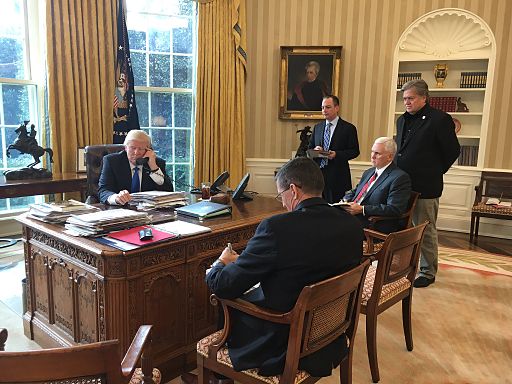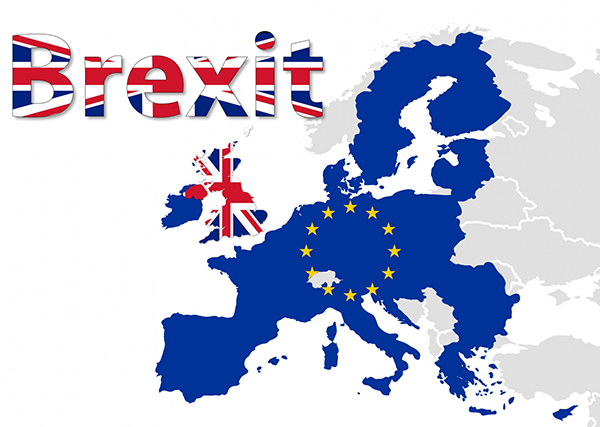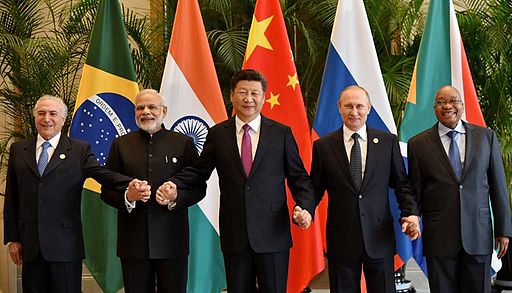President Donald Trump’s critical attitude toward international trade and investment is well known. This makes it only natural that most discussions of the international economic problems facing the new administration have concentrated on trade and “outsourcing.” There is little doubt that both America’s trading partners, and American corporations, will have to deal with an administration that exhibits levels of hostility toward international trade and investment that have not been seen since the 1930s.
Nonetheless, international finance is likely to present the administration with some of its most difficult challenges in its first year. Indeed, some of the new administration’s policies are likely to increase the possibility of international financial instability. The most pressing international economic trial facing the new American president may well be reducing this danger, and preparing to confront it should a new financial crisis hit.
The first year of the new presidential administration will present major challenges, and substantial opportunities. The challenges will come in the form of growing financial instability around the world, with a buildup of the sorts of macroeconomic imbalances that led to the Great Financial Crisis of 2008–09. The opportunities will present themselves as a new administration, and new governments in many of America’s partners, attempt to work to stabilize the global financial system and bring the world economy back toward growth.

The Trump administration's international economic priorities appear to focus on restricting imports and reducing outward investment by American corporations.
Although the Trump administration’s international economic priorities appear to focus on restricting imports and reducing outward investment by American corporations, international financial developments have a way of blindsiding American policy makers—as the administration of George W. Bush found out to its chagrin. If in fact international financial risks materialize, the administration will have little choice but to develop policies to address them. And the administration will quickly learn that confronting international financial instability requires cooperation among the world’s principal centers of economic activity. In any circumstances, conflicts of interest and opinion among the major financial powers would make this a diplomatic challenge. Given Trump’s apparent lack of enthusiasm for such cooperative measures, the task will be doubly hard. This is also true domestically, for the measures needed to limit the costs to the United States of financial crises abroad may well be controversial at home.
Financial crises have buffeted the world continually over the past 30 years. The Latin American debt crisis of the 1980s gave way to the Mexican crisis of 1994, then to the East Asian crisis of 1997–98. Argentina, Russia, Turkey, and other dominos fell in following years. Then came the global financial crisis that began at the end of 2007, the most serious economic collapse since the Great Depression of the 1930s. The impact of this last crisis continues to be felt around the world. Europe, indeed, remains mired in the aftermath.

On June 23, 2016, the United Kingdom voted to leave the European Union in a campaign known as Brexit.
The first year of the new administration will be precarious. The already-weak European recovery was thrown into disarray on June 23 when the United Kingdom voted to leave the European Union. Such emerging markets as Brazil are in deep trouble. The Chinese financial system seems to be teetering on the brink of a full-blown crisis.
The macroeconomic policies proposed by Trump seem almost certain to contribute to the fragility of international financial conditions. Cuts to corporate and personal taxes, along with large-scale spending on infrastructure, will substantially increase the budget deficit and act as a fiscal stimulus. This will trigger large capital inflows and—along with shifting Federal Reserve policy—increased interest rates. The result will be a stronger U.S. dollar, and expectations of these policies have already been reflected on currency markets. While a strong dollar is good for American consumers (but not for its manufacturers), it causes great problems for other countries, especially in emerging markets. This is because higher interest rates put pressure on their economies, American international borrowing will suck capital out of the rest of the world, and a stronger dollar increases the real debt burden of these countries, whose governments and corporations have borrowed heavily in dollars over the past decade. The result is almost certain to be real financial volatility, and perhaps financial crises, in a range of emerging and even developed economies.
Whether major new national or regional crises erupt, and whether they go global, remains to be seen, but the dangers are there, and almost certainly growing.
Financial crises are dangerous for many reasons. First, they are extremely expensive: They burn up, on average, three to five years’ worth of economic growth. They are not only dangerous to the country in which the crisis originates but they are easily transmitted around the world. This was strikingly apparent in 2007–08, as problems in a relatively minor segment of the American housing market sparked a panic of global proportions. Contagion is now common: The crisis in the Eurozone started in one of its smallest members, Greece, but quickly implicated all the countries that were members of the currency union, and many that were not members.
The economic costs of financial crises are far greater than those of cyclical recessions, for recovery from a debt crisis takes a very long time. A financial crisis leaves the countries affected with a “debt overhang,” a burden of accumulated debts. Creditors with a portfolio of bad, or potentially bad, loans are reluctant to lend. Debtors struggling to service their debts have to restrict their spending.
In the aftermath of a financial crisis, banks don’t lend and consumers don’t spend, which is why the average recovery takes from five to seven years, as opposed to a few months in the case of “normal” cyclical recession. The Eurozone has taken nine years to claw its way back to the level of economic activity prevailing before the crisis hit. The recurrence of major financial crises poses a serious economic threat to the entire world.
Financial crises have political costs as well. The Obama administration found in its first year in office how seriously the crisis it inherited impinged on all other policy issues. This is a common experience: Financial crises lead to major political conflict, often upheaval. Somebody has to make sacrifices to address the accumulated debts: Debtors have to tighten their belts to service their debts, while creditors have to rebuild their portfolios to recover from the bad debts on their books.
Debtors and creditors fight over the distribution of the burden of adjustment, as they did in the first year of the Obama administration. Creditors want to be repaid in full; debtors want their obligations to be reduced or restructured to share the pain. When, as is common, the financial ties are international, there is conflict among countries, with creditor countries arrayed against debtor countries. Within debtor and creditor countries, groups battle to shift the costs of the crisis onto others. Who will make the sacrifices necessary to rebuild the nation’s finances: taxpayers, bankers, government employees?

Economic and political costs of financial crises can be incalculable. The debt crises of the 1930s led almost directly to the rise of fascism in Europe.
The economic and political costs of financial crises can be incalculable: The debt crises of the 1930s led almost directly to the rise of fascism in Central and Eastern Europe. Today’s continuing debt crisis in Europe has inflamed extremist passions throughout the continent, shattered the cohesion of the European Union and, some believe, threatened the stability of democracy in some of its member states. Macroeconomic problems in the emerging markets have contributed to political instability in countries ranging from South Korea to Brazil.
We know how costly financial crises are. If we are to avoid them, we need to know what causes them. Today, three interrelated factors come together to create the conditions for crisis. The first is globe-straddling financial markets that can move trillions of dollars around the world. We welcome today’s international finance when it moves money from where it is less needed to where it can be used productively. We find it less appealing when it transmits panic around the world within hours.
Global financial integration might be less troubling if there were global financial regulation, but instead there are dozens of competing regulatory systems among the major financial centers. So the second challenge to financial stability is the existence of fundamentally different ways of regulating financial markets, when these differences can create conditions for regulatory evasion and eventual volatility.
Third and finally, the differences in the macroeconomic policies of the major economic powers can create the conditions for financial insecurity. When one country is stagnant and another is growing rapidly, capital moves away from stagnation and toward growth. The combination of differences of this sort, financial integration, and regulatory fragmentation can lead to massive capital flows as money sloshes from one place to another. These “global macroeconomic imbalances” were the cause of the American financial crisis of 2007–08, as well as of the Eurozone crisis that began then and continues. They create the conditions for cycles of boom and bust, with bubbles bursting that leave societies to clean up ever greater financial messes. Over the next year, as the Trump administration’s macroeconomic policies open ever greater divergences between the United States and the rest of the world, these imbalances are sure to grow—and potentially threaten financial stability.
Ever more global finance, and ever larger international financial markets, create tremendous opportunities. They make enormous sums available to emerging markets and other productive investments around the world. But the larger and more encompassing international finance becomes, the greater are the threats of larger and more damaging financial crises. The size and scope of these crises has grown continually since the 1980s. The crisis of 2007–08 came very close to bringing the world economy to a terrible halt, and risked a collapse worse than the Great Depression of the 1930s. The next crisis may be even bigger. America and the world need to devise measures to prevent, or limit the impact of, the next global crisis. But how?
The first year of a new administration often gives the new president the opportunity to undertake difficult initiatives. And international financial initiatives are always difficult, for the public has little understanding of, or interest in, the topic. In 2017, the president’s hand may be forced if some of the current tensions bubble up enough to require immediate attention. Even if crisis does not strike, the new president would be well advised to address international financial issues before they become so pressing.
We are not going to unwind today’s global financial markets. Despite candidate Trump’s antiglobalization rhetoric, it is unlikely that even he would like to see global financial markets close. They serve important purposes—and they probably couldn’t be tamed even if we wanted to do so. That leaves the other two sources of financial instability: inadequate and fragmented regulation, and uncoordinated macroeconomic policies. Specialists and policy makers in money and finance have recognized the desirability of harmonizing financial regulations and coordinating macroeconomic policies for decades. Some progress has been realized, but not enough to fundamentally change conditions or avoid the instability that has plagued international finance, and the international economy, over the past 25 years.
Governments have taken some steps toward harmonizing financial regulations. Under the auspices of the Bank for International Settlements, regulators from the major financial centers have agreed on some common standards. The effort has been only a qualified success, and a great deal more work will be needed before financial regulation is both adequate and consistent enough to avoid some of the regulatory nightmares that have surfaced.
It has been much more difficult to get governments to coordinate relevant macroeconomic policies. It is never easy for a government to subordinate national policies to abstract notions of international cooperation, especially when economic growth is at stake. And the demands of macroeconomic policy cooperation can be severe: It can mean reining in an economic expansion, or running a budget deficit, or raising taxes. In other words, almost by definition, macroeconomic cooperation requires governments to do things they would not otherwise do. And the benefits can be hard to measure, and even harder to justify to constituents. The barriers to cooperation will be particularly high for a politician who explicitly ran on a platform of hostility to previous patterns of international economic cooperation.
Difficult as it is to harmonize macroeconomic policies among nations, the inability to do so has been at the root of most of the economic upheavals of the past 25 years. Europe’s continuing tribulations are a bitter warning of how disastrous it can be when national governments are unable to agree on how to address economic differences among them.
Nobody would pretend that harmonizing financial regulation and macroeconomic policies among the world’s major economies is an easy task. Although there has been some progress in regulatory cooperation, it is hardly advanced. And despite 20 years of pious lip service to greater macroeconomic cooperation, to date there has been little or none of significance.
The obstacles to progress are political. Donald Trump has been explicit about his lack of enthusiasm for globalization in any case. Energized by this, powerful special interests can block cooperative efforts, and electoral pressures can make them risky for politicians who want to stay in office. Financial regulation everywhere is a thicket of special-interest pressures. In normal times, only financial institutions care enough, and know enough, to influence the design and implementation of financial regulation. When banks fail or a crisis hits, voters become painfully aware of the flaws in the regulatory architecture, blame politicians for them, and insist that they be repaired. But attention flags quickly, and soon the regulatory playing field is full only of the special interests.
The challenge to the new president will be to overcome popular opposition or apathy and interest-group influence to make regulatory progress both domestically and internationally. The United States is large enough that it can practically force the rest of the major financial centers to move forward. But the obstacles are substantial, at home and abroad. The benefits will not be immediate, but the economic and political importance of avoiding of a repeat of the Great Financial Crisis cannot be overestimated.

Coordination of macroeconomic policies is difficult because governments around the world jealously guard the autonomy of their monetary and fiscal policies.
The coordination of macroeconomic policies will be, if anything, more difficult. Governments from China to Germany jealously guard their monetary and fiscal policy autonomy. There are plenty of arguments as to why they, and other countries, would be better off working with other governments than on their own. But these arguments are usually overtaken by the realities of domestic politics. Again, the size and centrality of the United States gives it a unique opportunity to lead the way. However, Americans are no different from anyone else when it comes to an unwillingness to subordinate national economic goals to international considerations. And the new Trump administration appears to be less favorably inclined to cooperate on international economic matters than any White House in the past 80 years.
In the years before 2007, there were plenty of warnings from international financial institutions and others about the dangers of the macroeconomic imbalances, and in particular the massive foreign borrowing spree that the United States embarked on after 2001. But the Bush administration had little incentive to slow a rapidly growing economy, even if a housing bubble was increasingly obvious. In retrospect, to be sure, it might have been prudent—even politically wise—to act to restrain the American boom and get its macroeconomic conditions more closely aligned with those of its economic partners. However, such action requires real economic foresight and political statesmanship.
In the first year of the new administration, there will be major opportunities to take the lead in addressing global financial regulation and macroeconomic policy cooperation. In a way, the first year of the first Obama administration provides some guidance as to what might be feasible, and where there may be obstacles.
Both financial regulation and international policy cooperation were central to economic policy in Obama’s first year or so in office. True, it took more like a year and a half for the administration to actually propose the Dodd-Frank Act’s massive overhaul of the nation’s financial system, but the reform was in the works long before that. And, while the Act remains controversial, at some level most observers would regard it as a qualified success, at the very least in focusing attention on the desirability of more regulatory attention to new financial instruments.
By the same token, the major economic powers came together very quickly as the global crisis hit in 2008. The first year of the Obama administration saw a surprising degree of macroeconomic policy cooperation among the member states of the Group of Seven, and even in some instances of the Group of Twenty. The threat of a truly epochal shutdown of global financial markets, and the reality of the most serious recession since the 1930s, seems to have focused the minds of policy makers enough that, domestic politics or no, they worked hard to devise a common response to the crisis.
However, even the most optimistic appraisals of the Obama administration’s first-year efforts on financial regulation and macroeconomic policy coordination would have to accept that the efforts were not sustained. The implementation of Dodd-Frank quickly degenerated into traditional special-interest pleading for special treatment, and it is unclear which aspects of the Act will be preserved. And the Groups of Seven and Twenty just as quickly degenerated into the ineffectual talking shops they had been before the crisis.
The lesson would seem to be that progress in these international economic policies is possible, if the new administration is able to overcome the new president’s apparently visceral opposition to international economic cooperation. But progress will be fleeting—and its impact very limited—unless the administration can create enough political and institutional momentum to sustain these efforts past the first year. The immediate political incentives to do so may be weak, but the risks of inaction are enormous—and the government that presides over the next round of financial crises may be very sorry if action is not taken now.